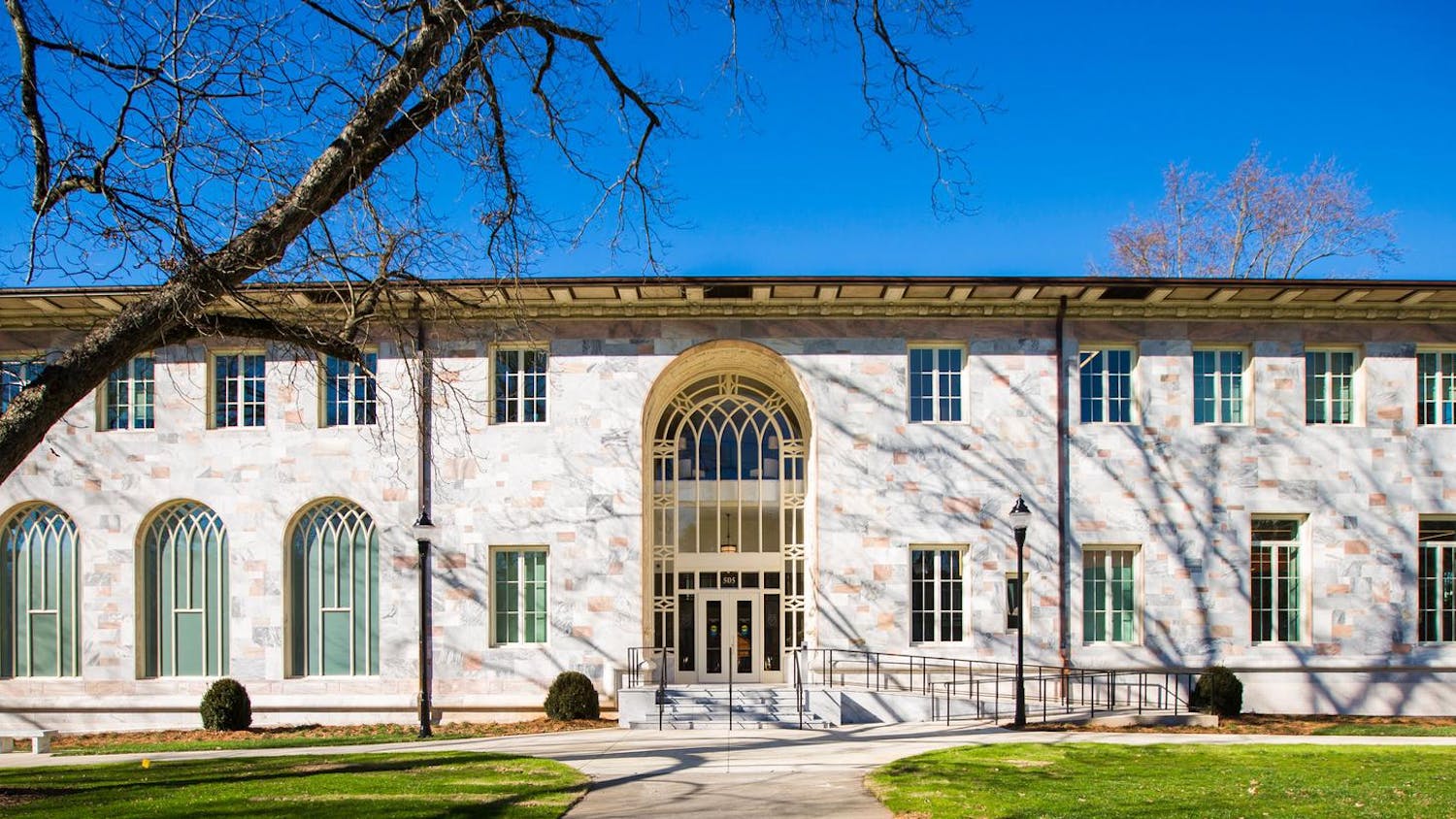Jason Charles
Staff Writer
Last week at Terminal West, Atlantian music lovers were treated to two generous sets of electronic indie-pop rock from acclaimed duo Dale Earnhardt Jr. Jr. (DEJJ).
As I waited in line outside the venue, I could hear the electro-tinged Bon Iver-esque harmonies soaring through the doors and I panicked, thinking I had somehow misread the start time and missed the opener.
But as I walked inside and the stage came in view, I saw Joshua Epstein and Daniel Zott on stage alone, without their band. After the first song concluded, they explained that Michael Shuman's (Queens of the Stone Age) side project, Mini Mansions, was set to open the show but their bus had broke down earlier that day, meaning that they now had to open for themselves. The crowd roared with excitement because we knew we were in for a special treat.
Dale Earnhardt Jr. Jr. formed as many great ideas do: in a basement.
In 2009, Joshua Epstein and Daniel Zott were both busy with their own musical endeavors in the Detroit indie scene. Epstein saw Zott perform, was impressed and decided to take a risk and give a complete stranger a call. The very next day, the two met in Zott's basement and wrote "Simple Girl," a folksy Beatles-like tune for the 21st century. The one track was all it took to convince both musicians to drop their respective projects and join forces.
The subdued opening set highlighted the duo's individual raw talent and collective songwriting prowess. It was a rare opportunity to appreciate the stories behind the music and to hear each of them speak a bit about the music as well. They joked about the awkwardness of the situation of having to open for themselves. "You all must be thinking, 'Wow Dale Earnhardt Jr. Jr. has the most depressing opener,'" joked Zott. Epstein reminisced about his personal "musical low point" earlier in his career when he used to play cover gigs just to pay the bills. He explained that he was asked to sing the refrain of "Cheeseburger in Paradise" at a local bar and almost cried of embarrassment.
The duo concluded their impromptu opening set with a lovely, chill-inducing cover of The Beach Boys classic, "God Only Knows."
After a quick break, DEJJ returned to the stage and immediately made light of the situation. "Hey that opener was pretty solid," Epstein teased. But then it was right back to business.
The second set was a danceable, blissful escape into psych-retro pop heaven. Song after song, DEJJ delivered with resonant harmonies, elevated synths and infectious beats.
Their newest track, "James Dean," was a haunting interruption from their high-energy shtick, offering a suspended, syncopated beat and electronically altered vocals. It's the kind of track that you can't help but hum to yourself as you leave the show.
The fact the DEJJ is not touring to support a new album allowed them to pull tracks at will from their catalog. Newer tracks like "Run" off of DEJJ's 2013's The Speed of Things followed the iconic 2011 single "Morning Thought" at will.
Towards the end of the set, DEJJ rallied the crowd and brought out their loudest, most danceable tracks. Zott hopped off stage and jumped with the crowd for one of my favorites, "If You Didn't See Me (Then You Weren't On The Dancefloor)." As bubbles filled the air above us and Zott danced and sang alongside his fans, I could not help but feel anything but elated.
The Detroit natives helped shape a genre of music that is now saturated with thousands of copycats and wannabes. But with not one, but two incredible sets demonstrating their musical aptitude and showmanship, DEJJ demonstrated how they have helped to shape a world of merging and emerging genres.
-- By Jason Charles, Staff Writer





